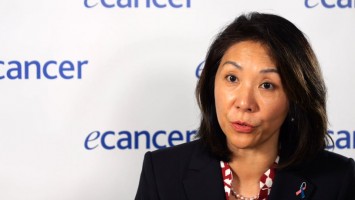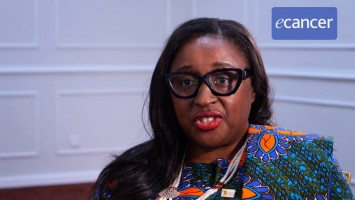The role of cancer surgery in Africa
Riccardo Audisio - Sahlgrenska University Hospital, Gothenburg, Sweden
The topic that I was discussing today and the whole session that I had the privilege to set up for the initiative today is all about the role of cancer surgery when dealing with cancer in Africa and low and middle income countries. The feeling is that there is lots of attention, there is actually some pocket money available as well, and everything revolves around innovation, new technologies, advanced radiotherapy and particularly medical oncologists and very expensive immunotherapy targeted treatments that are now available. Which is all fine and the fundamental issue is that we do work in a multidisciplinary environment. By the way, I’m not here to say that surgery is the best and I encourage everyone to think multidisciplinary.
Having said that, given that as we speak surgery is by far the most effective treatment in treating and curing cancer patients and, besides, is also the least expensive, it’s just a privilege to be here to wave the surgical flag and to make sure that, on one side, politicians, policy makers, investors understand how crucially important it is having surgeons on board. On the other hand my commitment is to confirm to our colleagues that the European Society of Surgical Oncology is totally committed to offering education, virtual education, webinars, we have fellowships, we have lots of opportunities for young surgeons in training who would be dedicated to bringing good quality surgical management to their patients in their country.
What are the current challenges for getting high quality surgical care to patients in Africa?
The big issue, and this is not only in Africa, it’s all around the world, the big issue is to overcome the situation where the general surgeon deals occasionally, sporadically if not exceptionally with a few cancer patients, performs a technically good, technically adequate surgical procedure but is not able to think multidisciplinary, is not able to interact with medical oncologists, radiation and therefore is unable to target the treatment specifically to each individual patient. The complexity here is that we are facing a totally new situation in that we have some hard evidence of what is good and what is bad in most developed countries, financially advanced countries, but we don’t really know what is it that is good, we do not have standards, for those countries where radiation oncology is not available, medical oncology is too expensive, so everything needs to be jiggled, re-jiggled and reassessed and probably developed, it definitely needs to be investigated, analysed and moved forward.
How can we encourage a multidisciplinary approach in these areas?
My privilege is to chair the surgical task force so we are starting with a list of twenty webinars on different topics, surgically oriented, where we have engaged with specialists worldwide and we will provide tutorials and education on a regular basis. Hopefully this could be a start to bridge the gaps and enhance the performance.
What new technologies are there to improve this sort of communication and education?
I think that webinars, particularly when recorded and easily accessible across the planet at any time, night and day, suits my colleagues, my surgical colleagues. It’s a very good start, it’s a cheap option, it can be accessed everywhere and when we make ourselves available for questions and expert advice and we can reply to questions written with an email, that, to me, seems to be a very good starting point.
Will people have to travel further to get surgery?
Hopefully not. Hopefully things will improve. At the moment this is the case everywhere, I’ve been told that people from outside Boston are not very keen to walk into town so this is not just uniquely relevant to low and middle income countries. But, of course, the more we can diffuse, the more we can distribute knowledge and know-how the better it is for all the cancer population.








